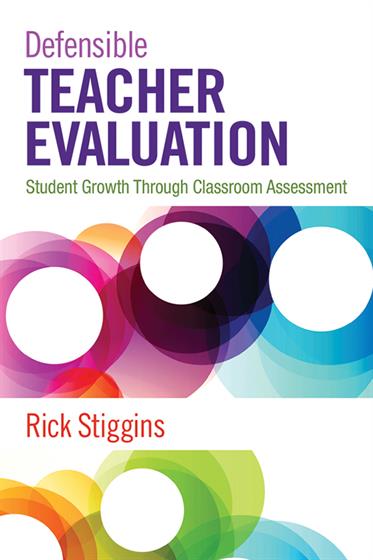Rick Stiggins has devoted his professional life to understanding keys to student academic success in the classroom. His mission has been to help teachers, school leaders, policy makers, and school communities apply research-based policies and classroom practices that help all students experience the highest-possible levels of learning success.
His preparation to fulfill this mission began as a psychology major at the State University of New York at Plattsburgh, followed by doctoral studies in educational psychology at Michigan State University. Rick’s focus on keys to student success was sharpened with early career experiences at the University of Minnesota, on the research staff of the Northwest Regional Educational Laboratory (NWREL) in Portland, Oregon, and as a visiting scholar at Stanford University. During this phase of his own development, Rick spent over a decade in classrooms with students and teachers researching and striving to understand (1) the task demands teachers face in managing the day-to-day classroom assessment process, and (2) how that process can positively impact students’ motivation, actions, and achievement, as well as their sense of themselves as learners.
With this foundation of understanding in hand, Rick founded the Assessment Training Institute (ATI) in 1992 in Portland, a professional development company whose mission was to promote the “assessment literacy.” He and his team developed and disseminated print, video, and online offerings that help educators, parents, and school communities in general learn to gather dependable evidence of student achievement and use that evidence effectively to develop truly effective instructional practices. Rick and the ATI team turned the spotlight onto the breakthrough practice of using “assessment for learning” or of engaging students in ongoing self-monitoring and management of their own growth while it is happening.
Primary among the materials Rick and his team created has been an award-winning professional text for teachers titled An Introduction to Student-Involved Assessment for Learning, now available in its seventh edition (Chappuis & Stiggins, 2017). In addition, he has authored numerous books, articles, and other writings on sound practice for pre- and in-service training, community outreach, and educational leadership that have helped literally hundreds of thousands of teachers, school leaders, and community leaders around the world improve their classroom practice, educational leadership capabilities, and professional confidence. Through these channels, it is safe to assume that Rick’s work has impacted the learning and self-confidence of millions of students over the past forty years.


